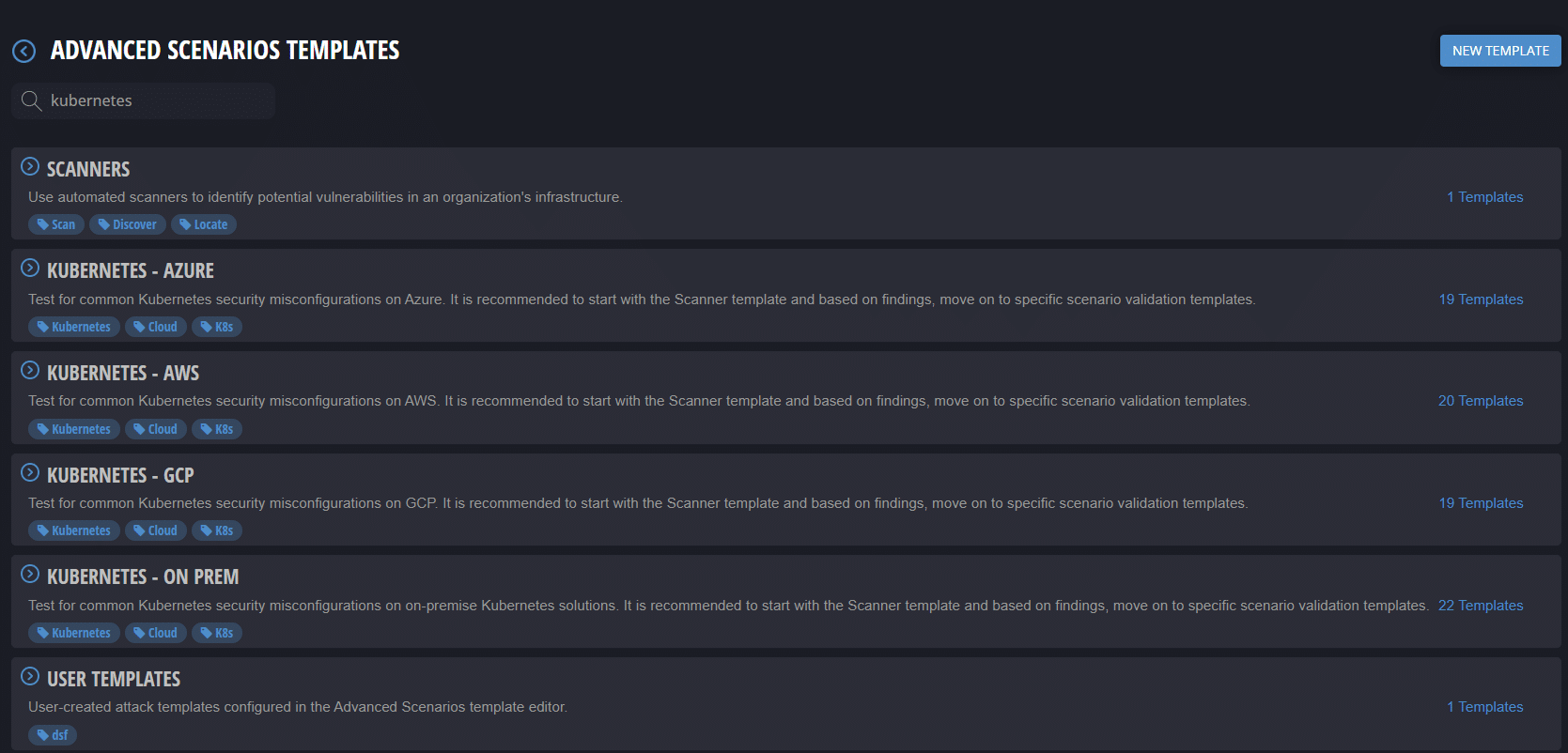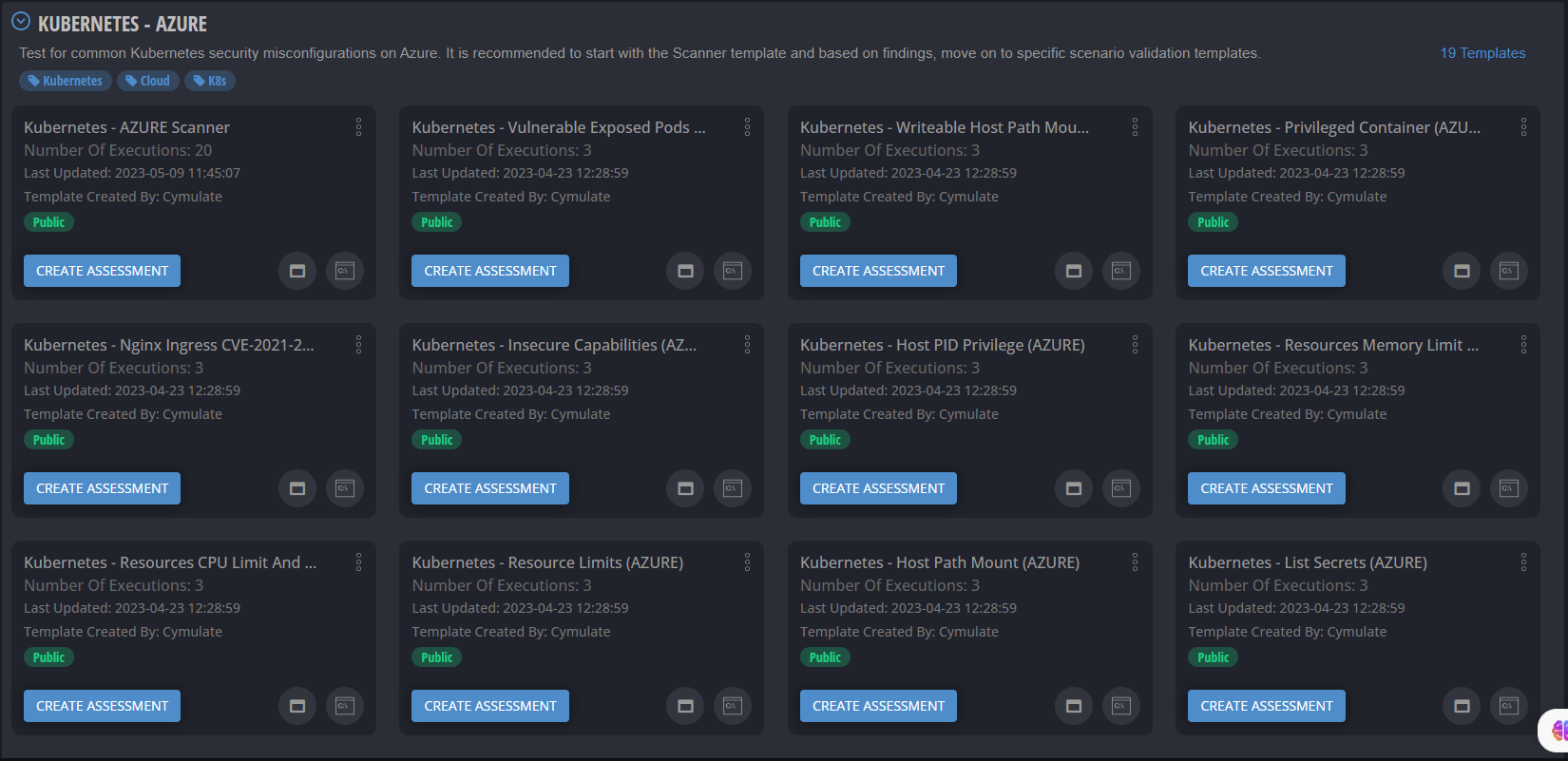The Power of Validating Detection in Kubernetes

As organizations increasingly adopt container orchestration systems like Kubernetes, ensuring the security and integrity of these environments is becoming critical. Kubernetes, being highly dynamic and complex, can be susceptible to various security risks if not properly monitored and managed. Before we dive into how Cymulate queries can help in securing your Kubernetes environments, let's understand the risks of not validating detection of executions run in Kubernetes environments.
The Risks of Not Validating Detection in Kubernetes
Kubernetes may have become the de facto standard for container orchestration, but that means that this great power comes with equally great responsibility. The dynamic nature of Kubernetes means that applications and services are constantly being scaled, updated, and reconfigured. This dynamism, if not properly monitored, can lead to security vulnerabilities.
- Unauthorized Access: If executions within Kubernetes are not validated for detection, there is a risk that unauthorized users could gain access to sensitive parts of the system, such as the Kubelet service. This could lead to data breaches or unauthorized control over the cluster.
- Privilege Escalation: Kubernetes environments can be vulnerable to attacks where a user gains more privileges than they are entitled to. For example, a container might be able to access host resources that it shouldn’t have access to. This can lead to unauthorized access to sensitive data or even control over the entire cluster.
- Misconfiguration: Kubernetes is known for its steep learning curve, and misconfigurations are common. Without validating detection, misconfigurations can go unnoticed, leaving the door open for attackers.
- Insufficient Logging and Monitoring: Without proper validation, you might not have sufficient logging and monitoring in place. This means that even if an attack takes place, you might not be aware of it until it’s too late.
With a better view of the kind of risks involved, let's explore how Cymulate queries can help in mitigating these risks.
What are Cymulate Queries for Kubernetes?
Cymulate queries are specialized tools that allow you to validate the detection of executions in Advanced Scenarios Kubernetes assessments. These queries are particularly useful for executions run in cloud environments like Azure and Amazon Web Services (AWS), Google Cloud Platform (GCP), or on-prem. Using Cymulate queries can ensure that your security products are functioning as intended and that they are capable of detecting potential security threats within your Kubernetes clusters.

Benefits of Using AWS Queries
Accessing Cymulate’s AWS Kubernetes queries require activating access to Amazon's native cloud security products, such as CloudTrail, CloudWatch, or GuardDuty, within your AWS testing account and connecting the Kubernetes cluster with these activated services. This connection is vital as it ensures the availability of essential monitoring and logging mechanisms, which allow Cymulate to properly query and validate that the connected Security Information and Event Management (SIEM) system detected the executions that were run.
Here are some of the queries available for AWS
- Kubernetes - Anonymous Access to Kubelet Service -> AWS GuardDuty - Anonymous Access to Kubelet Service
- Kubernetes - Host IPC Privilege -> AWS GuardDuty - Kubernetes Host IPC Privilege
- Kubernetes - Writable Host Path Mount -> AWS GuardDuty - Writable Host Path Mount
These queries are invaluable in ensuring that your AWS environment is secure against various Kubernetes-related vulnerabilities.
Benefits of Using Azure Queries
Similar to AWS, using Cymulate’s Azure Kubernetes queries requires activating access to at least one of Microsoft’s native cloud security products, such as Log Analytics or Microsoft Defender for Cloud, within the Azure testing account. A connection between the Kubernetes cluster and these services is also necessary.
Here are some of the queries available for Azure
- Kubernetes - Host IPC Privilege -> Azure Microsoft Cloud Defender - Kubernetes - Privileged container detected
- Kubernetes - Writable Host Path Mount -> Azure Microsoft Cloud Defender - Kubernetes - Writable Host Path Mount
These queries ensure that the Azure environment is equally secure and that the SIEM system is effectively detecting executions.

The Importance of Proactive Security
Validating the detection of executions in Kubernetes environments is, in effect, adopting a proactive approach to security. This helps identify and mitigate risks and comply with various regulatory requirements. It ensures that you have the necessary safeguards in place and that your monitoring systems are effectively keeping an eye on the activities within your Kubernetes clusters.
Cymulate queries offer a powerful tool for ensuring that security products, whether in AWS or Azure, are effectively detecting and mitigating threats in Kubernetes clusters.


